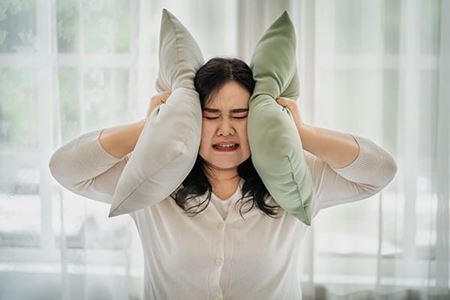Effects of Stroke

To better understand what happens with stroke, let’s take a closer look at the human brain and its functions.
The brain is the central organ of the human nervous system. This extremely complex organ controls both motor and sensory functions throughout the body:
- Helps you receive and interpret information from your senses (eyes, ears, nose).
- Is responsible for thinking, remembering, understanding, planning, reasoning, and problem-solving.
The brain is made up of billions of neurons (brain cells) that communicate through synapses.
If a stroke occurs and blood flow can't reach the region that controls a particular body function, that part of the body won't work as it should. How you are affected by a stroke depends primarily on the location and the extent of damage to the brain tissue. Brain injury can cause changes in certain sensory, motor, or cognitive functions. Our Brain Injury After Stroke card (PDF) will help you better understand what areas of the brain affect what functions.
Because nearly all of the signals from the brain to the body and vice versa cross over on their way to and from the brain, this results in each side of the brain controlling the opposite side of the body.
- A stroke on the left side of the brain affects the right side of the body.
- A stroke on the right side of the brain affects the left side of the body.
- If the stroke occurs toward the back of the brain, it's likely that some disability involving vision will result.
Left Brain
If the stroke occurs in the left side of the brain, the right side of the body will be affected, usually producing:
- Paralysis on the right side of the body
- Sensory changes on the right side of the body
- Speech/language problems
- Abstract thinking
- Problems with thinking and memory
- Slow, cautious behavioral style
Right Brain
If the stroke occurs in the right side of the brain, the left side of the body will be affected, usually producing:
- Paralysis on the left side of the body
- Sensory changes on the left side of the body
- Vision problems
- Spatial thinking or imagery
- Problems with thinking and memory Quick, inquisitive behavioral style
Brain Stem
When stroke occurs in the brain stem, it can affect both sides of the body. The most severe damage could leave someone in a ‘locked-in’ state. Locked-in state is a condition in which the patient is generally unable to speak and can’t move because of the paralysis of muscles except for vertical eye movements and blinking. The person remains conscious, they can hear, think, reason and comprehend. Communication is established through eye movements.
Types of Challenges
Resources
- Let’s Talk About Stroke and Vision Changes
- Let’s Talk About Black Americans and Stroke
- Let’s Talk About Stroke Diagnosis
- Let’s Talk About Complications After Stroke
- Let’s Talk About Personality Changes After Stroke
- Let’s Talk About Stroke and Aphasia
- Let’s Talk About Being a Caregiver for a Stroke Survivor
- Let’s Talk About Driving After Stroke
- Let’s Talk About Living at Home After Stroke
- Let’s Talk About Feeling Tired After Stroke
- Let’s Talk About Stroke Rehabilitation
- Aphasia ID Card





